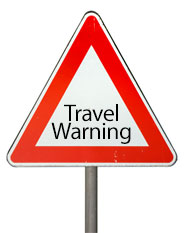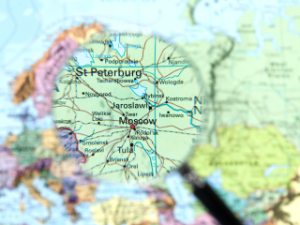Home Remedies to Deal with Dental Pain
May 19th, 2014 by Bryanna Davis You never realize how much dental pain can keep you from talking, eating or sleeping until it strikes. If you have a sudden tooth ache and aren’t able to visit the dentist right away- these home remedies to deal with dental pain are a great temporary fix. However, be conscious of any allergies you have when trying these home remedies and know that not all toothaches are created equal- this means not every remedy will work for every toothache.
You never realize how much dental pain can keep you from talking, eating or sleeping until it strikes. If you have a sudden tooth ache and aren’t able to visit the dentist right away- these home remedies to deal with dental pain are a great temporary fix. However, be conscious of any allergies you have when trying these home remedies and know that not all toothaches are created equal- this means not every remedy will work for every toothache.
- Mix one table spoon of salt with a glass of warm water and swish.
- Pour a small amount of hydrogen peroxide in your mouth and swish.
- Mash a garlic clove and hold it on the toothache.
- Make a cup of tea using a teabag. Take the used teabag and place it on the dental pain. Black tea or peppermint usually works best for this.
- Wet a cotton ball or cotton swab with water and roll it in baking soda. Apply the cotton to the tooth ache.
- Mix a table spoon of baking soda with a small glass of water and swish.
- Dip a cotton swab in vanilla extract, then hold it on the toothache.
- Take one clove and hold it in place against the toothache.
Keep in mind that these remedies are not meant to replace the care of a doctor or dentist. If you have a toothache, pain is typically a sign of something you need to have examined.
Before pain strikes, make sure you know the ins and outs of dental insurance and what you can expect to pay if you need to visit the dentist. If it’s too late, make sure you get the information you need before your next dental emergency. You can learn more on dental insurance here.
Greek International Student Insurance Plans
May 16th, 2014 by Jennifer Frankel Are you planning to study in Greece? If so, you will want to make sure you’ve got your Greek international student insurance plan in place before you go. That’s because even though they have nationalized health care, international students will not have coverage under this system.
Are you planning to study in Greece? If so, you will want to make sure you’ve got your Greek international student insurance plan in place before you go. That’s because even though they have nationalized health care, international students will not have coverage under this system.
What type of insurance works best for Greece?
The best type of insurance plan will depend on your personal situation. Here are some questions to ask yourself to narrow down your choices:
- How long will I be studying in Greece?
- What type of medical conditions am I trying to protect against?
- Does my current insurance cover me overseas?
These three questions will help to determine which plan will work best. Our most popular insurance plan for Greece is the Euro Travel plan as it covers you for accidents and illnesses that could occur during your travels. This plan will even cover if you travel to other countries throughout Europe.
How do international student insurance plans work?
With our Greek international student insurance plans, you will have access to 24 hour travel assistance which can help you locate a provider anytime of the day. You will get your documents emailed to you immediately which include your ID card that you can present to your provider. Don’t speak Greek? You don’t need to! Our travel assistance can get an interpreter on the line to help you get the medical treatment you need.
Need proof of insurance?
Our insurance plans provide immediate documents right away, allowing you to present proof of coverage – even if you don’t need your coverage to start until several months down the line. Simply print or email these documents to your school, consulate or embassy to show that you’ve met their insurance requirements.
Want to learn more? Check out our insurance page for travel to Greece to learn more about the health care system and insurance for international students.
Fun Ways to Deal with Culture Shock
May 12th, 2014 by Victoria Troupe International students come in many different shapes and sizes. Some are experienced world travelers while some are leaving their home for the first time. As exciting as studying in a foreign country can be, many people underestimate the probability of suffering from culture shock. Each culture is unique in different ways, and these differences can take a toll, no matter how culturally diverse you may be.
International students come in many different shapes and sizes. Some are experienced world travelers while some are leaving their home for the first time. As exciting as studying in a foreign country can be, many people underestimate the probability of suffering from culture shock. Each culture is unique in different ways, and these differences can take a toll, no matter how culturally diverse you may be.
How do you know if you are suffering from culture shock? Culture shock can take the form of many symptoms, including irritability, tiredness, loneliness, withdrawal, headaches, stomach aches, over-concern with health, and hopelessness. These may manifest a couple of weeks after your arrival and after the excitement of a new place has worn off. But not to worry! There are many fun ways to deal with culture shock so that you can enjoy your experience to the fullest. Here are my suggestions:
- Don’t forget about your hobbies. If you enjoy jogging or playing a musical instrument, for example, don’t forget about them when you go to a new place! Find a cool running path, join a gym, or buy a beat up guitar in a thrift shop. These can be great stress relievers!
- Make friends with locals as well as other international students. Close friends help you understand cultural nuances that might seem bizarre, and other international students can share in your new experiences and make you feel like you’re not alone. Fun ways to make friends are by joining groups and clubs at school, and attending other school events and hangouts. Don’t limit yourself to just one group, as isolation can cause even more adjustment hardships.
- Bring a taste of home to you! Think about what you miss the most about daily life back home and try to recreate it for your new friends! If you miss a certain type of food, find a specialty grocery store to find all of the ingredients, or ask a relative to mail you your favorite candy or treat!
- Talk to someone! Sometimes just letting it all out will make you feel a lot better. Culture shock is so common that most schools have counselors available to chat with you about your stresses. Seeking guidance and help to feel better is not a bad thing and should not be looked down upon. These counselors are a resource and will be your friend, even if you feel all alone.
- Finally, remember that laughter heals. Maintain a sense of humor about the mishaps and predicaments you find yourself in. Learning to brush it off and try again will get you closer to conquering your new domain.
Remember to allow yourself to learn and respect the customs of your new country. In doing so, your own values and customs will be challenged and re-examined. This is one of the most beneficial aspects of studying internationally. Your culture shock will subside and you’ll return home with a new outlook of your world.
Check out our Insurance Explained section for more information on staying healthy while you study.
Top 5 Ways to Keep in Touch When Traveling
May 9th, 2014 by Ross MasonTraveling can be lots of fun – you get to unwind, experience new things and generally disconnect from every day life back home. But if you are planning on being away for an extended period, or you want to keep in touch with family and friends, our top 5 ways to keep in touch when traveling will put you in good stead!

Staying connected when abroad
1. Start a Blog or Journal
The old way of keeping in touch was to send postcards back to family and friends from all the different places you have been. While some still do that, the modern way to handle this is to write or keep a journal or blog of your time abroad. Especially if you are going to be traveling to lots of different places, a travel journal or blog is not only a fun way to capture all your memories, but also allow you friends and family to follow you if they want to. The more popular blogs such as WordPress offer free solutions, and if you are technically savvy you can maybe work out how to get your own domain. Or you can just use one of the many travel journal sites like travellerspoint.com or mytripjournal.com.
2. Smartphone Apps
There are a plethora of smartphone apps now that pretty much let you do anything you want to keep in touch, from Facebook to Twitter, then there are the messaging apps like Whatsapp and then of course the free calling apps like Skype and Facetime. Do you research ahead of time and you can have all the apps you need downloaded that will let you talk and message with your friends and family when abroad. This is a pretty good list to get started with – if you have others, please add them in the comments.
3. Country Sim Cards
Mobile phone companies are starting to realize that charging users extortionate amounts of money to roam internationally does not make sense, and over the last year we have seen the price of using your phone abroad come down. In Europe, by 2015 it will be illegal for phone companies to charge you when you roam within the EU – and in the USA, AT&T just came out with a free international roaming package. So using your phone should be easier – but there are still many companies that charge “a lot” of money if you roam internationally. So to get around that, you should purchase a local sim card for the country you are traveling to and avoid those roaming charges. Check out the choices available here, for a range of international sim cards.
4. Find Free Wifi Hotspots
Most of the time you can find free wifi hotspots either at your hostel or hotel, or at the airport. If this is not the case, then you might want to do some advanced research and locate those hotspots that are free. There is an excellent app call JiWire where you can search for hotspots around the world – just plug in your location details and it will tell you where to go. Certainly worth checking out!
5. Plan Your Check-Ins
While not really a way to keep in touch, our #5 is really a safety measure for yourself when you travel. You should always plan to check-in with family and friends at least once a week – whether that is just an email, skype call, or post on your blog. It will let your family know that you are safe and well, and they should not sound the alarm because you have not responded to their emails. You can also use our 4 points above, for ways to organize this weekly checkin!
Good luck with your travels and we hope these points help you have a safe, and connected travel experience!
Health Insurance for International Students in Italy
May 5th, 2014 by Bryanna Davis If you’re planning on studying in Italy you more than likely already know that it’s a country that offers a number of top notch educational institutions for students to choose to study at. With its deep history and large amount of museums- it provides the perfect backdrop for an international education. If you’re going to study in Italy, it’s important to know that you will need one of two types of visas:
If you’re planning on studying in Italy you more than likely already know that it’s a country that offers a number of top notch educational institutions for students to choose to study at. With its deep history and large amount of museums- it provides the perfect backdrop for an international education. If you’re going to study in Italy, it’s important to know that you will need one of two types of visas:
- Schengen Visa- for travel that is less than 90 days
- National Visa- for travel that is more than 90 days
In either case you will need to purchase international health insurance for your time as a student in order to get the visa you need. As an international student inside of Italy, you are able to use your school’s group insurance plan from your home country if it will work for you internationally. Alternatively, you can purchase an individual health insurance plan that will meet your international health needs.
When looking for coverage, there are a few items that you will want to make sure your health insurance for international students in Italy includes, and those are the following items: emergency medical evacuation, repatriation of remains, doctor’s visits and hospitalization.
A few plans that offer these benefits along with a number of other benefits include the following:
- Atlas Travel plan: Allowing you to choose your own coverage amount and deductible, this plan gives you the coverage you need but is also a great option for those on a tight student budget.
- Student Secure plan: A great option if you will need coverage for more than a few months and want to be able to have coverage for maternity, mental health, organized sports and pre-existing conditions.
- Europe Travel plan: Another flexible option that gives you all of the coverage essentials along with a few extras like liability and enhanced personal accident.
To get more information on health insurance for international students in Italy and available plan options you can visit here.
May 2014 Travel Warnings
May 2nd, 2014 by Ross Mason
May 2014 Travel Warnings
The May 2014 travel warnings are a listing of any warnings that have been posted by the US Department of State in the month of April, warning travelers who plan to visit those countries.
Countries listed through the month of April 2014 include:
Cameroon – April 25th, 2014
The Department of State warns of the risk of travel to Cameroon and cautions travelers to avoid all travel to the Far North region of Cameroon. The Boko Haram terrorist group is active in the Far North, and has actively targeted foreign expatriates resident in Cameroon and tourists. Eleven expatriates have been kidnapped since 2013. The most recent kidnapping was on April 4, 2014, when attackers kidnapped two Italian priests and a Canadian nun during the night from their residences in Tchere, near the city of Maroua, located approximately 60 kilometers from the Nigerian border. A French priest was kidnapped from the town of Nguetchewe in November 2013, and a French family of seven (three adults and four children) was kidnapped while traveling near Waza National Park in February 2013. Boko Haram and an affiliated group, Ansaru, were responsible for the kidnappings of the French victims, and are believed to be responsible for the latest kidnappings in April 2014. Boko Haram’s leaders have stated and demonstrated through their actions over the past year that they are actively seeking to kidnap “Westerners” and U.S. citizens traveling to or living in the Far North and North regions of Cameroon.
Democratic Republic of Congo – April 23rd, 2014
The Department of State warns of the risks of traveling to the Democratic Republic of the Congo (Congo-Kinshasa) (DRC). The Department recommends U.S. citizens avoid all but essential travel to the provinces of North Kivu and South Kivu and the Ituri region in the province of Orientale. With ongoing instability and violence in North and South Kivu, northeastern Orientale, and northern and central Katanga province, the Department’s ability to provide consular services to U.S. citizens in these regions of the DRC is extremely limited.
Republic of South Sudan – April 23rd, 2014
The U.S. Department of State warns against all travel to the Republic of South Sudan and recommends that U.S. citizens currently in South Sudan depart immediately. As a result of the deteriorating security situation, the Department of State ordered the departure of most remaining U.S. government personnel from South Sudan on January 3, 2014. The U.S. Embassy is therefore only able to offer very limited emergency services to U.S. citizens in the Republic of South Sudan.
Ukraine – April 16th, 2014
The Department of State warns travelers to defer all non-essential travel to Ukraine. In addition, the Department of State warns U.S. citizens to defer all travel to several regions of Ukraine, including the Crimean Peninsula and eastern regions of Kharkiv, Donetsk, and Lugansk due to the presence of Russian military forces in the Crimean Peninsula and on the eastern border of Ukraine. Russian forces have occupied the Crimean Peninsula in support of the Russian Federation’s claim of Crimean annexation and these forces are likely to continue to take further actions in the Crimean Peninsula consistent with its claim.
Chad – April 15th, 2014
The Department of State warns of the risks of travel to Chad and recommends citizens avoid travel to eastern Chad and border regions. Travelers should be particularly vigilant when visiting hotels, restaurants, markets, and easily accessible public areas that expatriates and foreign travelers frequent. While there are presently no known specific threats against U.S. citizens in Chad, there are violent extremist organizations in the region, such as Boko Haram and al-Qai’da in the Lands of the Islamic Maghreb (AQIM), who are intent on harming westerners and western interests and are able to cross borders easily.
Colombia – April 14th, 2014
The Department of State has issued this Travel Warning to inform travelers about the security situation in Colombia. Tens of thousands of U.S. citizens safely visit Colombia each year for tourism, business, university studies, and volunteer work. Security in Colombia has improved significantly in recent years, including in tourist and business travel destinations such as Bogota and Cartagena, but violence linked to narco-trafficking continues to affect some rural areas and parts of large cities.
Sudan – April 10th, 2014
The Department of State warns of the risks of traveling to Sudan, urging U.S. citizens to avoid all travel to the Darfur region of Sudan, the Blue Nile and Southern Kordofan states, and advises you to consider carefully the risks of travel in other areas of Sudan. While the Government of Sudan has taken some steps to limit the activities of terrorist groups, elements of these groups remain in Sudan and have threatened to attack Western interests. Terrorist actions may include suicide operations, bombings, or kidnappings.
Kenya – April 4th, 2014
The U.S. Department of State warns of the risks of travel to Kenya. International Citizens in Kenya, and those considering travel to Kenya, should evaluate their personal security situation in light of continuing and recently heightened threats from terrorism and the high rate of violent crime in some areas. The U.S. government continues to receive information about potential terrorist threats aimed at U.S., Western, and Kenyan interests in Kenya, including in the Nairobi area and in the coastal cities of Mombasa and Diani. Terrorist acts can include suicide operations, bombings – to include car bombings – kidnappings, attacks on civil aviation, and attacks on maritime vessels in or near Kenyan ports.
Burundi – April 3rd, 2014
The Department of State warns of the risks of traveling to Burundi because Burundi participates in peacekeeping operations in Somalia, the terrorist organization al-Shabaab, based in Somalia, has threatened to conduct terror attacks in Burundi. It may also target U.S. interests in Burundi.
While traveling, please keep these travel warnings in mind and remember to exercise extra care if you are visiting these countries, and check with your travel insurance provider to make sure you still have coverage in place – sometimes some benefits can be excluded for countries under a travel warning. Travelers are also advised to enroll through the U.S. Department of State’s Smart Traveler Enrollment Program (STEP) to stay up to date on travel security information.
Top 5 Tips on How To Compare Insurance Plans
April 28th, 2014 by Jennifer Frankel![]() Finding a health insurance plan that meets your needs and wallet isn’t easy. With so many options and difficult jargon, how is anyone suppose to figure out which plan is right for them? If you will be studying outside your home country, it’s important that you find an insurance plan that is suited to your international needs. There are some must-have benefits for all travelers, and other benefits that may be unique to your health needs. To help you through this process, we’ve put together 5 tips on how to compare insurance plans to narrow down your options and figure out which plan is best for you.
Finding a health insurance plan that meets your needs and wallet isn’t easy. With so many options and difficult jargon, how is anyone suppose to figure out which plan is right for them? If you will be studying outside your home country, it’s important that you find an insurance plan that is suited to your international needs. There are some must-have benefits for all travelers, and other benefits that may be unique to your health needs. To help you through this process, we’ve put together 5 tips on how to compare insurance plans to narrow down your options and figure out which plan is best for you.
- Consider your needs. If you are going to be studying outside your home country, you will need a plan that covers you in your destination country, and includes emergency medical evacuation and repatriation. While many international plans cover accidents and illnesses that occur on your policy, it’s important to think about what activities you’ll be involved in, what plans you have for the future, and any current conditions that you may need to manage while overseas. Read through this list and make sure to verify if this is covered under your policy (that is, if you need it!):
- Organized sports
- Maternity
- Mental health
- Extreme sports
- Pre-existing conditions
- Consider your school and visa requirements. Once you’ve figured out what your plan must include, it’s important to consider any requirements you’ll need to meet. Some visas require a minimum level of health insurance and your school may have minimum requirements as well. If you’ll be studying at a college or university be sure to check with them to see what your plan must include. If you’ll be studying in the US, use our School Requirements to help you figure out which plan meets your health insurance requirements.
- Consider the financial solvency of your plan. If you’ll be purchasing a plan, then you’ll want to make sure they have the ability to cover any claims you have. After all, isn’t that the point of getting a health insurance plan? To figure this out, there are independent rating agencies that help evaluate the insurance carrier’s ability to pay claims. AM Best and Standard and Poor’s are two reputable agencies that evaluate the insurance’s carriers financial strength. We recommend purchasing a B or better.
- Consider where you can go and how claims are filed. Depending on the insurance plan, you may be restricted to a particular network of doctors and hospitals. This can be very important as you may find that there are no network providers in your area. Before purchasing a plan, it’s important to review the network where you’ll be living or traveling to. You will also want to verify how claims are paid, and ask these important questions:
- How do I file a claim?
- When do I need to file a claim?
- How long does it take to process a claim?
- Do I pay first and get reimbursed or do you offer direct payment?
These questions are important so that you know the process, what to expect, and how long it can take before you get reimbursed. Be sure to ask these questions prior to purchasing the plan and make sure the process will work for you.
- Consider the level of service. When you are traveling around the world, excellent customer service is a must. Find out what your insurance plan is offering and what type of help is included in the plan. Questions you should ask include:
- Do you have 24 hour travel assistance?
- Can you help me find a provider nearby?
- Do you have toll-free numbers that I can call?
- Are there translation services in case I need help in my native language?
Want to learn more about comparing health insurance plan options? Read our article on Evaluating Student Insurance Plans so that you are prepared for anything that comes your way while overseas.
Insurance for Studying Abroad in Russia
April 25th, 2014 by Victoria Troupe Students studying abroad in Russia get to experience one of the most exotic, vast countries in the world. While the size of Russia alone is outstanding, the cultural diversity and educational advantages of this special country are many. But venturing into the unknown comes with increased risks. The change in climate and exposure to new things can cause illnesses and home-sickness. Injuries can happen unexpectedly whenever you’re in a new place, traveling and living the Russian life. With so many uncertainties, insurance is vital to your study abroad success!
Students studying abroad in Russia get to experience one of the most exotic, vast countries in the world. While the size of Russia alone is outstanding, the cultural diversity and educational advantages of this special country are many. But venturing into the unknown comes with increased risks. The change in climate and exposure to new things can cause illnesses and home-sickness. Injuries can happen unexpectedly whenever you’re in a new place, traveling and living the Russian life. With so many uncertainties, insurance is vital to your study abroad success!
“Oh no! Is Russia dangerous?”
Despite the cold, Russia might not be any more of a risk to your health than any other country you would travel to. However, there are additionally considerations to be mindful of. International students should consider purchasing medical insurance that covers both medical care and emergency medical evacuation for their study abroad in Russia. Because Russia is so huge, the quality of Russian medical care varies throughout the country. Emergency Medical Evacuation is sometimes the only option to receive proper care for your medical situation, since it covers the cost of transportation to the nearest capable medical facility.
“Am I required to have insurance when I go to Russia?”
Insurance is not only an advisable precaution to take, it is also required for some nationalities. Using the principle of reciprocity, medical insurance is required for citizens of a country that requires medical insurance from Russian citizens entering their own country. You should visit your particular Russian Consulate or Embassy to determine what insurance requirements apply to you.
“Which insurance plans will meet my needs in Russia?”
Although your insurance requirements may differ depending on where you’re from, there are a couple plans that meet the needs of most people – the Europe Travel plan and the Atlas Travel plan. Both of these plans will cover you in case of injuries or illnesses while in Russia, as well as Emergency Medical Evacuation. For more information about health insurance in Russia and appropriate insurance plans, check out our Russia Student Insurance page.
How does the ACA apply to me?
April 24th, 2014 by Jennifer Frankel If you are an international student, you may be confused about how the Patient Protection and Affordable Care Act applies to you. Also known as PPACA, ACA, or ObamaCare, this legislation can be confusing, especially as much of the information out there doesn’t directly speak to international students. To help you on your way, here’s an overview of how the ACA applies to you:
If you are an international student, you may be confused about how the Patient Protection and Affordable Care Act applies to you. Also known as PPACA, ACA, or ObamaCare, this legislation can be confusing, especially as much of the information out there doesn’t directly speak to international students. To help you on your way, here’s an overview of how the ACA applies to you:
International Students Are Exempt from the ACA
Good news is here! All international students holding a F, J, Q and M visa are exempt from the individual mandate for the first 5 calendar years that they are in the US. This means that whether you are an international student or even if you are on OPT, you can choose the most suitable health insurance policy that meets both your individual needs and budget – without having to worry about any penalty.
What This Means For You
Many health insurance plans that meet the ACA minimum essential health benefits are often not appropriate for the needs of foreign students. They are designed with US citizens in mind, offering long-term care without medical evacuation and repatriation benefits – not to mention they come with an expensive price tag and large out of pocket costs.
International students can purchase a comprehensive health insurance plan that is tailored to address their needs including:
- Outpatient Care
- Inpatient Care
- Medical Evacuation & Repatriation
- Prescription Medications
- Maternity, Mental Health, Organize Sports, and more!
Insurance Options That Meet Your Needs
Our Student Secure plan is an excellent option for international students with three levels to choose the plan that works best for your specific needs. Check our School Requirements to see if our plan will work for your institution.
Want to learn more about the Affordable Care Act? Read our latest article on the Impacts of the ACA on International Students.
Automobile Accidents and How my International Health Insurance Works
April 18th, 2014 by Bryanna Davis Getting into an automobile accident doesn’t usually work its way into daydreams about travels abroad. However, car accidents do happen- and quite frequently. Approximately 1.24 million deaths occurred worldwide in 2010 due to road traffic accidents according to the World Health Organization (WHO).
Getting into an automobile accident doesn’t usually work its way into daydreams about travels abroad. However, car accidents do happen- and quite frequently. Approximately 1.24 million deaths occurred worldwide in 2010 due to road traffic accidents according to the World Health Organization (WHO).
While you can skip including automobile accidents into your daydreams- you do need to include it in your items to be prepared for…just in case. Having international health insurance can provide you with protection if an automobile accident were to occur while abroad. Here are just a few ways that it can protect you.
Emergency Medical Evacuation: Not every medical facility is able to handle every injury. Because of this this, emergency medical evacuation is sometimes necessary. If you are at a facility that isn’t able to provide you with the treatment you need after a car accident, or if your accident occurs in a remote location, an evacuation will quickly take you where to need to be to get the treatment you need. Evacuations can save your life, but can also be extremely expensive- make sure your international health insurance plan includes emergency medical evacuation.
Urgent Care: Depending on the severity of your car accident- it could land you in urgent care which can quickly rack up high medical bills. Urgent care coverage gives you treatment that your life depends on and that your wallet will be pleased with.
Dismemberment: If an accident leaves you with the loss of eye sight or a limb it will require you to have a period of adjustment and more than likely multiple medical treatments to come. A plan that has dismemberment coverage can help offset this burden.
Repatriation of Remains: If your accident is fatal, this will ensure that your remains are able to safely return home, and your family will not be faced with the heavy financial responsibility of getting you there.
Liability: Some international health insurance plans also include liability which is helpful in the instance of a car accident. Liability may include personal liability- injury to a third person, damage to a third person’s property, or both. If you want a plan that includes liability if a car accident were to occur make sure to check out the exclusions of the plan and that liability in the instance of a car accident is not excluded.
Keeping these items in mind, then checking out what your plan includes in relation to these benefits should allow you to stop asking yourself about “automobile accidents and how my international health insurance works.”